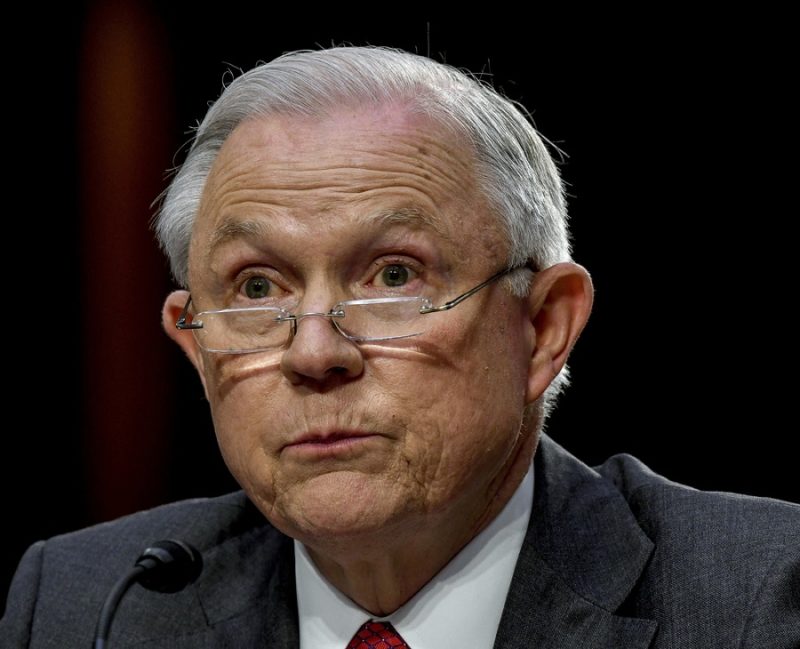Seven documents juvenile justice agencies used to track disproportionate arrests of minority youth and compliance with other rules were among the two dozen federal guidance documents the Justice Department recently disavowed, sparking questions and concern across the field.
Those documents were part of the batch of two dozen that Attorney General Jeff Sessions pulled back last week. While Obama administration guidelines in support of affirmative action in college admissions grabbed the headlines, the list also includes manuals for keeping teens separated from adults in custody and reducing disproportionate minority contact (DMC) with police, as well as outlining record-keeping requirements for status offenses like possessing alcohol as a minor.
The documents were written to help state and local authorities comply with the federal Juvenile Justice and Delinquency Prevention Act, which is facing reauthorization in Congress this year. But Sessions called them “unnecessary and improper,” arguing that they amounted to new regulations imposed “without any public notice or comment period.”
“That’s wrong, and it’s not good government,” he said in a statement announcing the decision. “In the Trump administration, we are restoring the rule of law.”
However, Sessions withdrew those guidelines without providing any new guidance, said Marcy Mistrett, CEO of the Campaign for Youth Justice.
“It’s like you’re telling states to do these things, then removing all guidance about how to do that,” Mistrett said. “So things are now left pretty directionless about how to do that from the feds.”
And Melissa Sickmund, director of the National Center for Juvenile Justice, said the move may leave state officials scratching their heads until new rules are put in place.
“If I were a brand-new, just-got-hired-today, first-day-on-the-job compliance person in a state, where do I go for information? What rules am I supposed to follow? That’s right now the basic question,” said Sickmund, whose organization is the research arm of the National Council of Juvenile and Family Court Judges. Without new guidance, “What are the new rules, especially the new rules for DMC? What are they doing to be?”
Racial disparity plans rouse skepticism
The attorney general’s July 3 announcement came on the heels of remarks by the new head of the department’s Office of Juvenile Justice and Delinquency Prevention, Caren Harp, that left many in her audience questioning her office’s plans to reduce racial disparities in juvenile arrests.
Harp’s comments and Sessions’ move to rescind the guidance documents prompted a warning from the National Juvenile Justice and Delinquency Prevention Coalition, an umbrella organization for youth- and family- serving, social justice, law enforcement, corrections, and faith-based organizations. The group called the decision to remove the documents “negligent,” and said their revocation, Harp’s remarks and other recent moves were “an abdication of the Office’s decades-old mission.”
“These recent actions are not helpful to states, nor to children or their communities. The Department of Justice should take immediate steps to correct these actions,” the coalition wrote.
The Justice Department would not comment on the issue.
Despite years of efforts to reduce the disparities, black and Latino youth remain up to five times more likely to be booked and removed from their families as white teens for offenses like disorderly conduct, said Mistrett, whose organization is part of the coalition.
“That is clearly not a public safety threat. It is a different response by adults in the system to specific children,” she said. And withdrawing a manual designed to address the problem with no new guidance “is pretty concerning.”
The Justice Department also took steps to strike the documents from its websites, but they’re still available in online archives or on other agencies’ pages.
This month’s move follows Sessions’ November announcement that Justice would no longer issue guidance documents that he says amount to “de facto regulations” and the December abandonment of 25 other documents — including one aimed at limiting the financial burden imposed on families of a child defendant. And the June 3 statement announcing the rollbacks suggested similar moves are still in the works.
Correction: An earlier version of this story incorrectly attributed a statement on the Justice Department's decision to rescind guidance documents relating to the OJJDP. The statement was issued by the National Juvenile Justice and Delinquency Prevention Coalition, not the Coalition For Juvenile Justice. Also, the CJJ represents juvenile justice state advisory groups and their allies; it's not an umbrella organization of policy advisers, nonprofits and other organizations.
